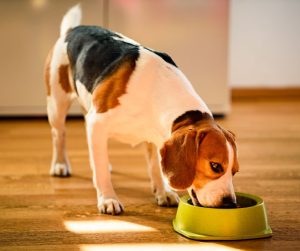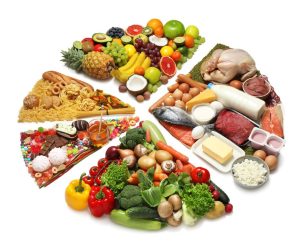There are many good reasons that most dog owners prefer to buy dog food and not make it for themselves. The right store-bought dog food gives your dogs the nutrients they need while saving you the time of researching the right diet and making the food yourself. However, there are dog owners who want to take the time to make their dog’s food.
In this blog, we cover the risks and rewards of homemade dog food that you should know before you decide to try it.
You may also be interested in our previous blog answering common questions about whether or not a raw food diet is good for your dog.
Risks With Making Your Own Dog Food
 Embarking on the journey of preparing homemade dog food comes with a spectrum of risks that demand careful consideration and a deep understanding of canine nutrition. One of the most critical challenges is achieving a nutritional balance. According to a study by the University of California, Davis, a staggering 95% of homemade dog diets are deficient in at least one essential nutrient.
Embarking on the journey of preparing homemade dog food comes with a spectrum of risks that demand careful consideration and a deep understanding of canine nutrition. One of the most critical challenges is achieving a nutritional balance. According to a study by the University of California, Davis, a staggering 95% of homemade dog diets are deficient in at least one essential nutrient.
This statistic underscores the complexity of replicating the meticulously balanced formulations found in commercial dog foods, which are designed to meet all of a dog’s nutritional needs.
Proteins, the building blocks of a healthy canine diet, present another significant challenge. Dogs require essential amino acids that are typically derived from a variety of protein sources. Relying on a single protein source, as the American Kennel Club points out, can lead to an incomplete amino acid profile, depriving dogs of these critical nutrients.
This oversight can have far-reaching implications on a dog’s health, ranging from poor coat quality to more severe metabolic issues.
The balance of minerals like calcium and phosphorus is particularly crucial, especially for growing puppies. An imbalance, as highlighted by the Journal of the American Veterinary Medical Association, can lead to skeletal problems, a concern not to be taken lightly.
This delicate ratio is often hard to maintain in homemade diets and can result in:
- Incomplete proteins: Dogs need essential amino acids that come from various protein sources. A homemade diet that relies on a single protein source may not provide all the necessary amino acids.
- Calcium and Phosphorus Imbalance: An improper balance of calcium and phosphorus in homemade dog food can lead to skeletal issues, especially in growing puppies.
- Vitamin A, D & B Complex Deficiency: All vitamins are critical for your dog’s health but the most important and easy to overlook are A, D, and parts of the B complex of vitamins.
Microbial contamination is also an important concern, especially when handling and preparing raw ingredients like meat, a common component in homemade dog diets. The Centers for Disease Control and Prevention (CDC) warns of the risks associated with raw meat, which can harbor harmful pathogens, posing a threat not just to the pet but also to the household.
Portion control is another area where homemade diets often falter. Determining the correct portion size is not only crucial for maintaining optimal weight but also for ensuring the right balance of nutrients. Along with the risk of overfeeding and misinformation are among the top risks of homemade dog food.
Why Some Owners Choose Homemade Dog Food
 To the contrary, some dog owners prefer to make their dog food at home for the following reasons:
To the contrary, some dog owners prefer to make their dog food at home for the following reasons:
- Quality Control: Making your own dog food allows you to have control over the quality of the ingredients.
- Dietary Preferences: Homemade dog food can be tailored to meet your dog’s specific dietary needs and preferences.
- Avoiding Allergens or Digestive issues: Some dogs have allergies or sensitive stomachs that can be avoided when you make it yourself
- Avoiding Additives, Fillers, & Preservatives: Commercial dog foods often contain additives, fillers, preservatives, and artificial ingredients.
- Variety: Homemade dog food allows for greater variety in your pet’s diet by rotating ingredients in and out of the recipe.
- Freshness: Homemade dog food is typically made in smaller batches, ensuring that the food is fresher compared to commercial options.
- Tailored Nutrient Balance: You can customize the nutrient balance in homemade dog food to suit your dog’s age, size, and activity level or weight loss/gain goals.
Homemade Dog Food For Dogs With Cancer
When considering homemade dog food for a canine companion battling cancer, the first and most crucial step is to consult with a veterinarian or a canine oncologist. They can guide you on the appropriate diet that supports your dog’s health during cancer treatment.
In formulating a homemade diet for a dog with cancer, several key nutritional aspects must be considered, including:
 High-Quality Protein: Protein is essential for maintaining lean muscle mass. Choose high-quality protein sources such as lean meats, poultry, or fish.
High-Quality Protein: Protein is essential for maintaining lean muscle mass. Choose high-quality protein sources such as lean meats, poultry, or fish.- Moderate Fat: Avoid excessive dietary fat, as it can contribute to obesity. Moderate amounts of healthy fats, like those found in fish or flaxseed, can be beneficial.
- Carbohydrates: Select complex carbohydrates that provide a steady source of energy. Whole grains like brown rice, quinoa, or sweet potatoes can be suitable choices.
- Antioxidants: Antioxidant-rich foods such as fruits and vegetables can help support the immune system. Blueberries, spinach, and carrots are examples of foods high in antioxidants.
- Omega-3 Fatty Acids: Omega-3 fatty acids, typically found in fish oil supplements, may have anti-inflammatory properties and can be beneficial for dogs with cancer.
Other things to consider include avoiding processed commercial dog foods that contain additives and preservatives, keeping your dog hydrated, and feeding smaller more frequent meals to help with nausea or GI upset.
With your veterinarian, you can decide which option is best for your lifestyle and more importantly, your dog.
Download our Dog Wellness Journal to track their diet and nutrition, complete monthly challenges to help keep your dog healthy, and more!
Should Your Dog Eat A Raw Food Diet? Probably Not, Here’s Why
Top 10 Dog Food Ingredients TO AVOID & Why
8 Superfoods For Your Dogs Diet That Can Help Fight Cancer
The Top Ten Warning Signs of Cancer Exposed
Common Chemotherapy Side Effects




Recent Comments